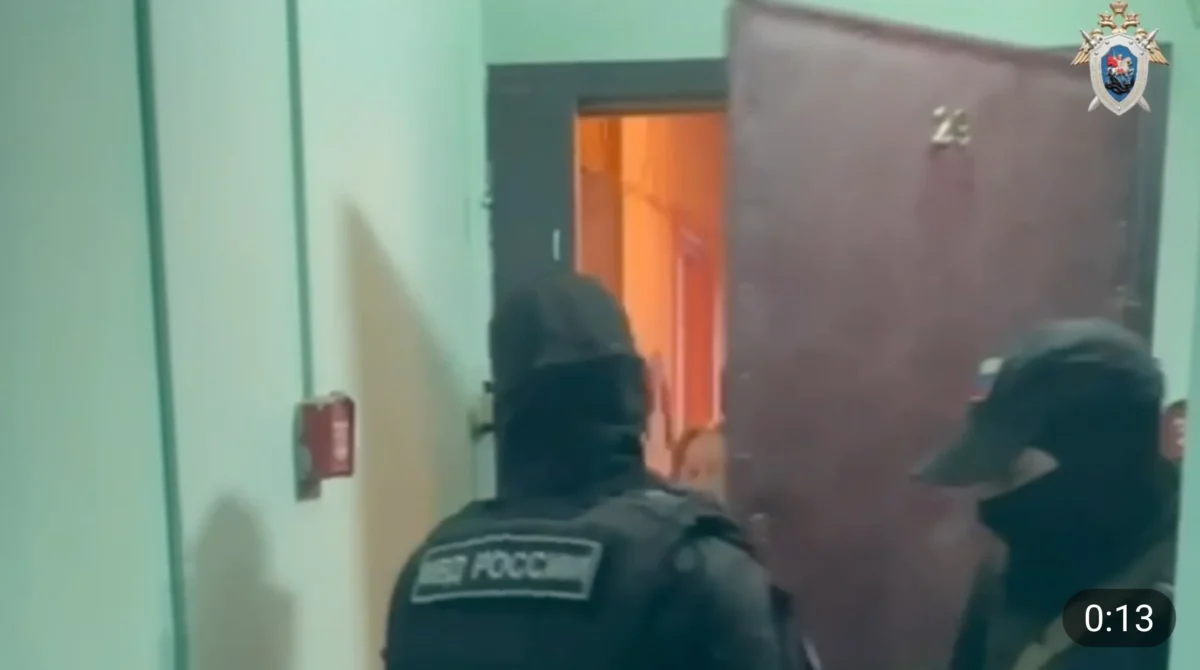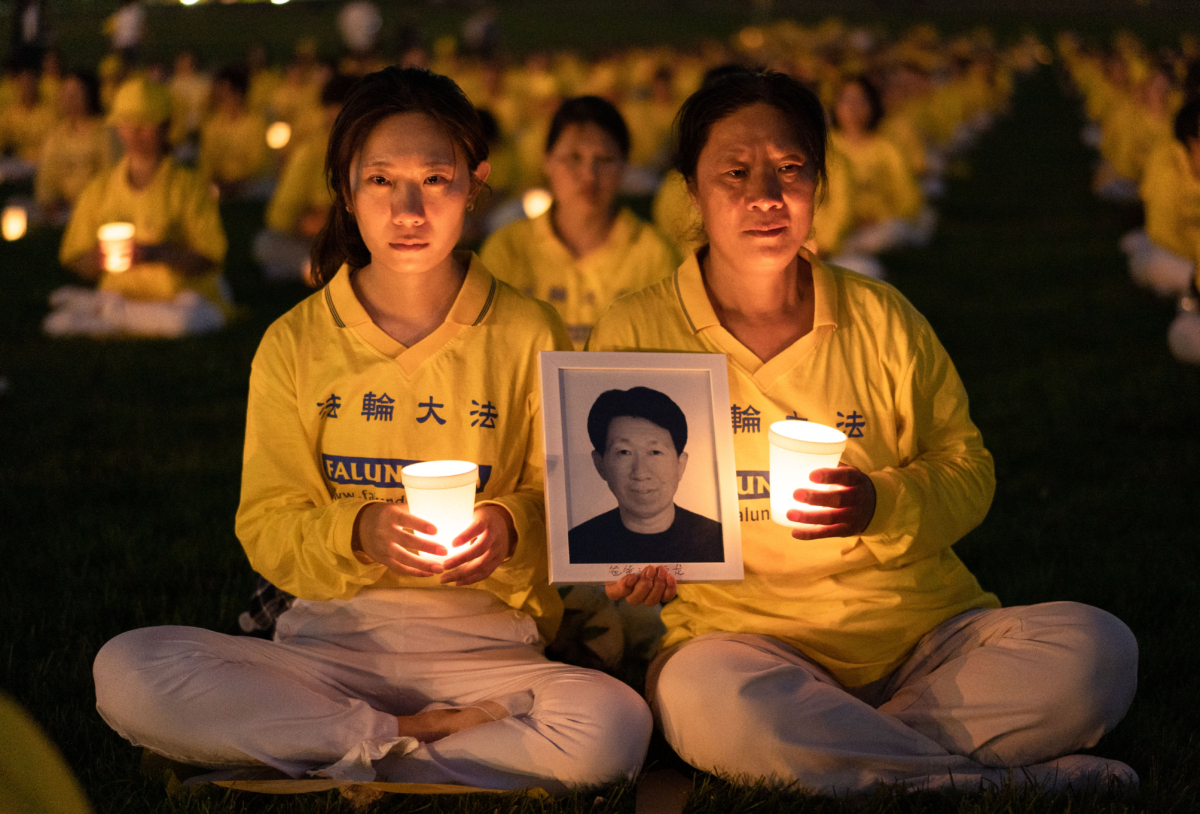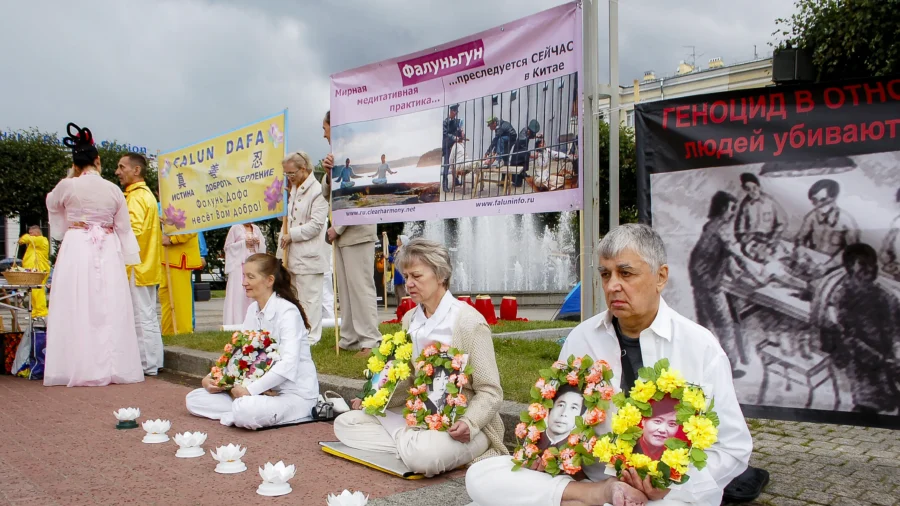Russian authorities on May 3 raided the homes of five practitioners of the Falun Gong spiritual discipline, under a controversial law that includes “carrying out the activities of an undesirable organization.”
The home searches conducted by Moscow police are the latest escalation in a campaign against the spiritual group, which has included the banning of books, confiscation of literature, harassment, and interrogations.
The May 3 raids were highly publicized by Russian authorities and state-owned outlets. In describing Falun Gong, Russian media outlets regurgitated extreme, decades-old Chinese Communist Party disinformation about the peaceful practice.
Falun Gong is a traditional Chinese meditation practice rooted in the principles of truthfulness, compassion, and forbearance. It is practiced in countries around the world but in China, where an estimated 70 to 100 million practiced Falun Gong by 1999, the year the Chinese regime began a brutal persecution campaign involving forced labor, psychiatric abuse, and forced organ harvesting.
China and Russia reached a “no limits” partnership in February 2022 and since then the two countries have made a series of agreements to further their “strategic cooperation.” Chinese companies have been providing support for Russia to sustain its war in Ukraine. Russia’s President Vladimir Putin plans to visit China this month, marking his first trip abroad since securing reelection in March.
The Kremlin’s increasing reliance on China appears to be fostering intensifying pressure on Falun Gong.
“The practitioners operated legally using a registered organization,” a Moscow-based Falun Dafa practitioner, who requested anonymity for safety reasons, told The Epoch Times.
The controversial criminal law used as a basis for the raids—”carrying out the activities of an undesirable organization”—passed in 2015 and has been used by Russian authorities to target more than 100 organizations, as well as journalists and human rights activists.
The law carries a penalty of up to six years in prison.
“It’s appalling that Russian authorities would arrest Falun Gong practitioners simply because they seek to meditate, study Falun Gong teachings, and adopt its principles—truthfulness, compassion, tolerance—into their daily lives,” said Levi Browde, executive director of the Falun Dafa Information Center.
“We implore Russian authorities to resist any behind-the-scenes pressure from the Chinese Communist Party and protect their own citizens’ rights and freedoms.
“Today, Falun Gong is freely practiced in more than 100 countries around the world, where it is welcomed and often celebrated. Only communist China has sought to demonize and persecute Falun Gong practitioners.”
Highly Publicized Raid
Videos posted of the raid by Moscow police on its official Telegram account show police kicking open an apartment door and tackling a young man to the ground near his bedroom door. One officer knelt on the man’s back.
“Hands behind your back,” a police officer said. “What, you didn’t understand the first time?”
The Epoch Times learned from people familiar with the matter that the man is the brother of a Falun Gong practitioner.
In another video, an officer demanded an answer for a delay in opening the door.
“Because I needed to dress,” a woman answered.

A video showed a man with two children by his bedside explaining to officers that they didn’t do anything wrong or illegal.
“We just do the exercises, that’s it,” he told the police.
The authorities seized materials such as books and introductory brochures to the practice as evidence. The Epoch Times learned from the Moscow-based source that four practitioners were detained and held for questioning.
Mr. Browde urged the United States and other democratic governments to “call for the immediate release of these wrongfully detained practitioners.”
Increased Repression
Over the years, Falun Gong adherents in Russia have faced some pressure from authorities. Falun Gong’s main book, Zhuan Falun, was banned in the country in 2011, a move that the European Parliament censured. Falun Gong practitioners in Russia who had attained U.N. refugee status were forcibly repatriated to China, for example, the 2017 case of Ma Hui and her 8-year-old daughter, Ma Jing.
The European Court of Human Rights in 2023 ruled that the Russian ban on Falun Gong materials is illegal.
In November 2023, police and Russia’s anti-extremism unit, which has faced accusations of prosecuting opposition groups and civic activists, searched the homes of Falun Gong adherents in several regions, including Moscow, St. Petersburg, Irkutsk, and the Irkutsk region.

The U.S. State Department, in its latest human rights report, said Russia has “misused antiterrorism and antiextremism laws, as well as other measures” to target a regional branch of Falun Gong and seven Falun Gong-associated nonprofits “without any credible evidence of violent actions or intentions.
“These designations effectively banned the worship and activities of these groups, and members were subject to prolonged imprisonment, harsh detention conditions, house arrest and house raids, discrimination, harassment, and criminal investigation for participating in the activities of a banned organization,” the report states.
From The Epoch Times

